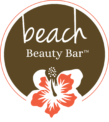Are you on a Pescatarian diet?
Is your diet mostly comprised of fish? If it is, you should read on.
Plant-based diets are increasing in popularity. Research is proving that plant-based diets can be just as nutrient-rich and beneficial for your health as a diet that includes meat.
However, there are those who are concerned that a plant-based diet will make it difficult to meet their nutritional needs. Many people opt out of a strictly vegetarian or vegan diet for one with a protein basis of fish.
Did you know that eating fish can lead to acne breakouts?
There are certain patterns you could be repeating daily that can cause your skin to breakout. The hard part is discovering the root of the problem.
What is a Pescatarian?
Simply put, a pescatarian is anyone who follows a plant-based diet and eats seafood but no poultry, beef, pork, or flesh from other land animals. Most pescatarians also eat eggs and dairy, but that’s not always the case.
Basically, if you like the idea of slashing your meat intake, but you have a love affair with salmon, the pescatarian diet may be for you.
People who follow the plan eat a wide variety of plant-based foods, like fruits, vegetables, legumes, whole grains, and nuts—plus fish and seafood.
But is it healthy for you?
You might be wondering if eating all that fish is actually good for you.
I can tell you, the healthfulness of a pescatarian diet comes down to two factors: the amount and type of seafood consumed, and the quality and balance of the other foods a pescatarian eats.
A Pescatarian diet is intended to be primarily plant-based, with a few meals per week featuring fish.
The seafood on a pescatarian diet includes freshwater fish such as trout or perch, and saltwater fish like salmon or tuna. We recommend freshwater fish choices for our acne clients as all others contain considerably more iodine than freshwater species.
Other choices in a pescatarian diet are shellfish including shrimp, oysters, clams, and more.
While eating fish has nutritional benefits, it also has potential risks. Fish can take in harmful chemicals from the water and the food they eat. Which leads me to other key factors to remember when consuming fish.
Factors to consider
Iodine
Many of us are getting far too much iodine in our diets.
When you get too much iodine in your blood stream it comes out through your sebaceous glands into your pores, irritating them and causing inflammation, which can lead to break-outs.
I have seen an increasing number of people go pescatarian, and many might be surprised to know that they’re eating far too much seafood.
Mercury
Mercury in seafood can add up quickly, especially if you’re consuming it daily. The FDA recommends two to three servings of fish per week, as well as varying the types of fish you eat – especially if you exceed three servings.
And cut your intake of fish that are highest in mercury: Tile-fish, swordfish, shark, king mackerel, and tuna.
Some low-mercury seafood options, including canned light tuna, cod, clams, salmon, and catfish, are generally less of a cause for concern.
Soy & Sushi
Products that contain soy and soy sauce affect your endocrine, digestive, and natural detox systems.
Soy sauce contains gluten, a common acne-aggravating culprit. This is heartbreaking to hear for a die hard sushi gal like me.
PS: If you’re a sushi lover, don’t worry – you can replace soy sauce with coconut aminos, which can be found at any health food store. Also note: Nori sheets used in sushi rolls contain iodine, which aggravate acne as well.
Salmon
Yes, wild salmon and sushi-grade tuna are excellent sources of protein, and they’re rich in omega-3 fatty acids, which are good fats tied to anti-inflammation, brain, eye, skin, heart, and muscle health.
Salmon are considered “anadromous” which means they live in both fresh and salt water. They are born in freshwater where they spend a few months to a few years (depending on the species) before moving out to the ocean. When it’s time to spawn, they head back to freshwater. Salmon is a-okay in our book.
The bottom line
For most people, the health benefits of eating a plant-based diet plus fish far outweighs the potential risks.
With that being said, we are all made up of a unique combination of chemicals and hormones, so it’s always good form to keep track of what you’re eating and how it affects your body.
And – if you are prone to acne, it’s especially important to monitor your diet so you can easily pinpoint the types of foods that are aggravating your skin.
Wondering about which foods or ingredients clog your pores? — Schedule an acne consultation, and we will provide you everything you need to know.
Cheers to clear!
Rene



